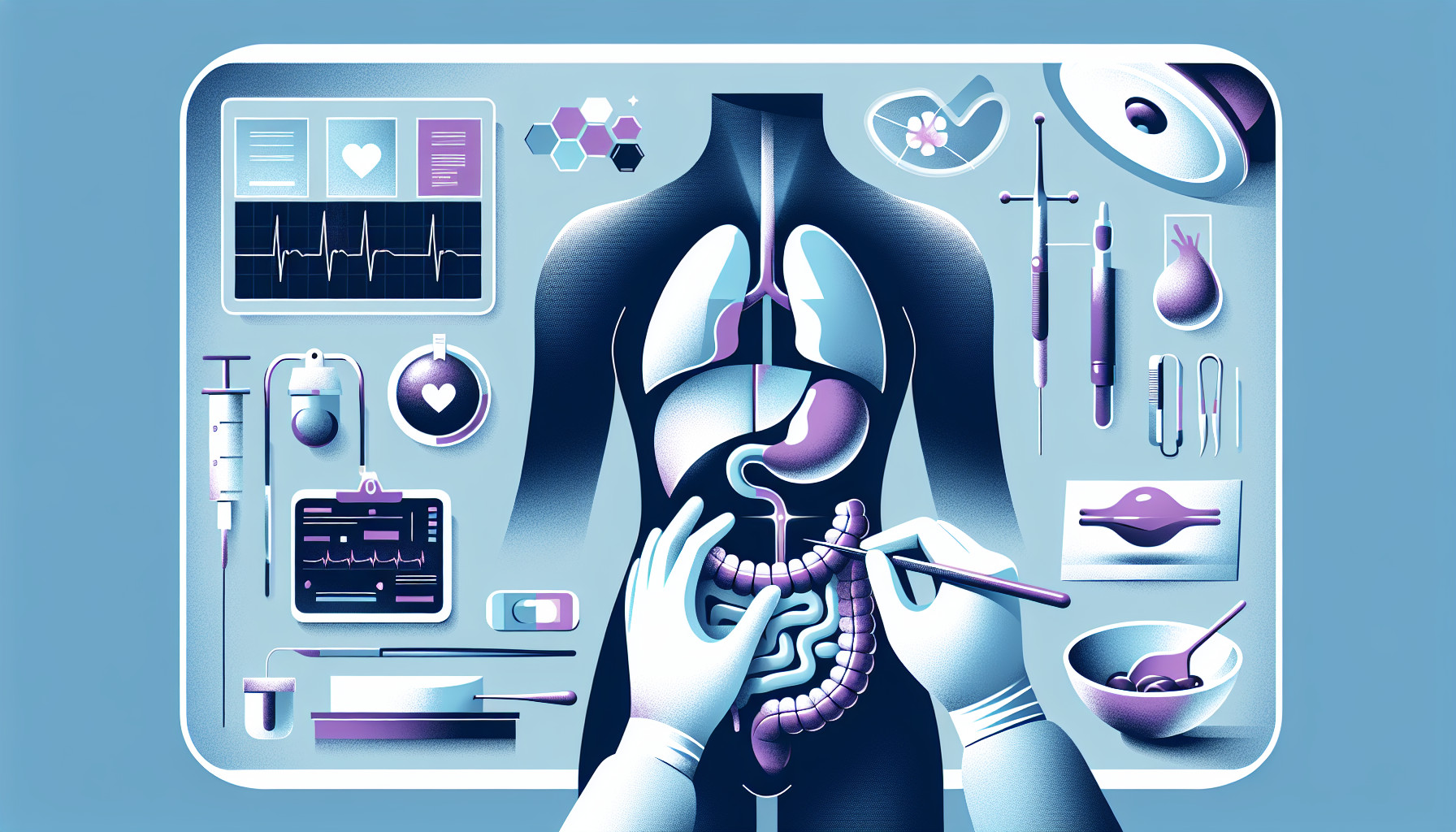Our Summary
This research paper discusses a case of a woman who successfully became pregnant twice after undergoing a complex operation known as the Whipple procedure, which is usually performed to treat specific types of cancers. The woman, who is 28 years old and has been pregnant five times, came to the hospital at 20 weeks pregnant because she was experiencing worsening depression.
She had previously undergone the Whipple procedure due to a condition in her pancreas. Despite this, she was able to successfully give birth in her first pregnancy after being induced at 38 weeks due to pre-existing diabetes. During her second pregnancy, however, she had to be admitted to the hospital multiple times for diabetic ketoacidosis, a serious complication that can occur in people with diabetes. She was scheduled to be induced at 35 weeks, but had to undergo a cesarean delivery due to complications.
The study concludes that women who have undergone the Whipple procedure generally have successful pregnancies, but the most common complications during pregnancy include diabetes, abdominal pain, and pancreatitis (inflammation of the pancreas) or cholangitis (an infection of the bile duct).
FAQs
- What is the Whipple procedure and why is it performed?
- What are the common antenatal complications for women who have undergone the Whipple procedure?
- How are pregnancies managed in women who have previously undergone a Whipple procedure?
Doctor’s Tip
One helpful tip a doctor might tell a patient about Whipple procedure is to closely monitor their blood sugar levels and follow a strict diabetic diet if they develop diabetes mellitus after the surgery. It is important for patients to work closely with their healthcare team to manage any potential complications, such as abdominal pain and pancreatitis/cholangitis, during pregnancy. Additionally, regular follow-up appointments and communication with healthcare providers are essential to ensure the best possible outcome for both the patient and the baby.
Suitable For
Patients who are typically recommended for a Whipple procedure include those with periampullary neoplasms, pancreatic cancer, ampullary cancer, bile duct cancer, or pancreatic neuroendocrine tumors. Other conditions that may require a Whipple procedure include benign tumors of the pancreas, chronic pancreatitis, or trauma to the pancreas or bile ducts. It is important for patients to be evaluated by a multidisciplinary team to determine if they are suitable candidates for the procedure based on their overall health and the extent of their disease.
Timeline
Before Whipple procedure:
- Patient is diagnosed with a periampullary neoplasm
- Patient undergoes preoperative evaluations and tests to determine if they are a candidate for the Whipple procedure
- Patient undergoes the Whipple procedure, which involves the removal of the head of the pancreas, part of the small intestine, gallbladder, and sometimes part of the stomach
- Patient may experience postoperative complications such as infection, bleeding, or delayed gastric emptying
- Patient undergoes postoperative recovery and monitoring for potential complications
After Whipple procedure:
- Patient may experience long-term complications such as diabetes mellitus, malabsorption, and weight loss
- Patient may require ongoing monitoring and management of these complications
- Patient may experience difficulty with digestion and may need to make dietary changes
- Patient may have a decreased quality of life due to the effects of the surgery
- Patient may need to undergo follow-up imaging and tests to monitor for recurrence of the neoplasm
What to Ask Your Doctor
- Can I still have a successful pregnancy after undergoing a Whipple procedure?
- What are the potential risks or complications of becoming pregnant after a Whipple procedure?
- How will my previous surgery impact my pregnancy and delivery?
- Will I need any special monitoring or care during my pregnancy due to my history of Whipple procedure?
- Are there any specific dietary or lifestyle recommendations I should follow during pregnancy after a Whipple procedure?
- How will my previous surgery affect my ability to carry the pregnancy to full term?
- What are the chances of developing gestational diabetes or other complications during pregnancy after a Whipple procedure?
- Are there any specific signs or symptoms I should watch for during pregnancy that may indicate a problem related to my previous surgery?
- How will my previous surgery impact my ability to breastfeed after delivery?
- Are there any additional precautions I should take during pregnancy and postpartum due to my history of Whipple procedure?
Reference
Authors: Magoga G, Felder L, Palazzo F, Berghella V. Journal: J Matern Fetal Neonatal Med. 2020 Jan;33(2):344-348. doi: 10.1080/14767058.2018.1488959. Epub 2018 Jul 22. PMID: 29895203
